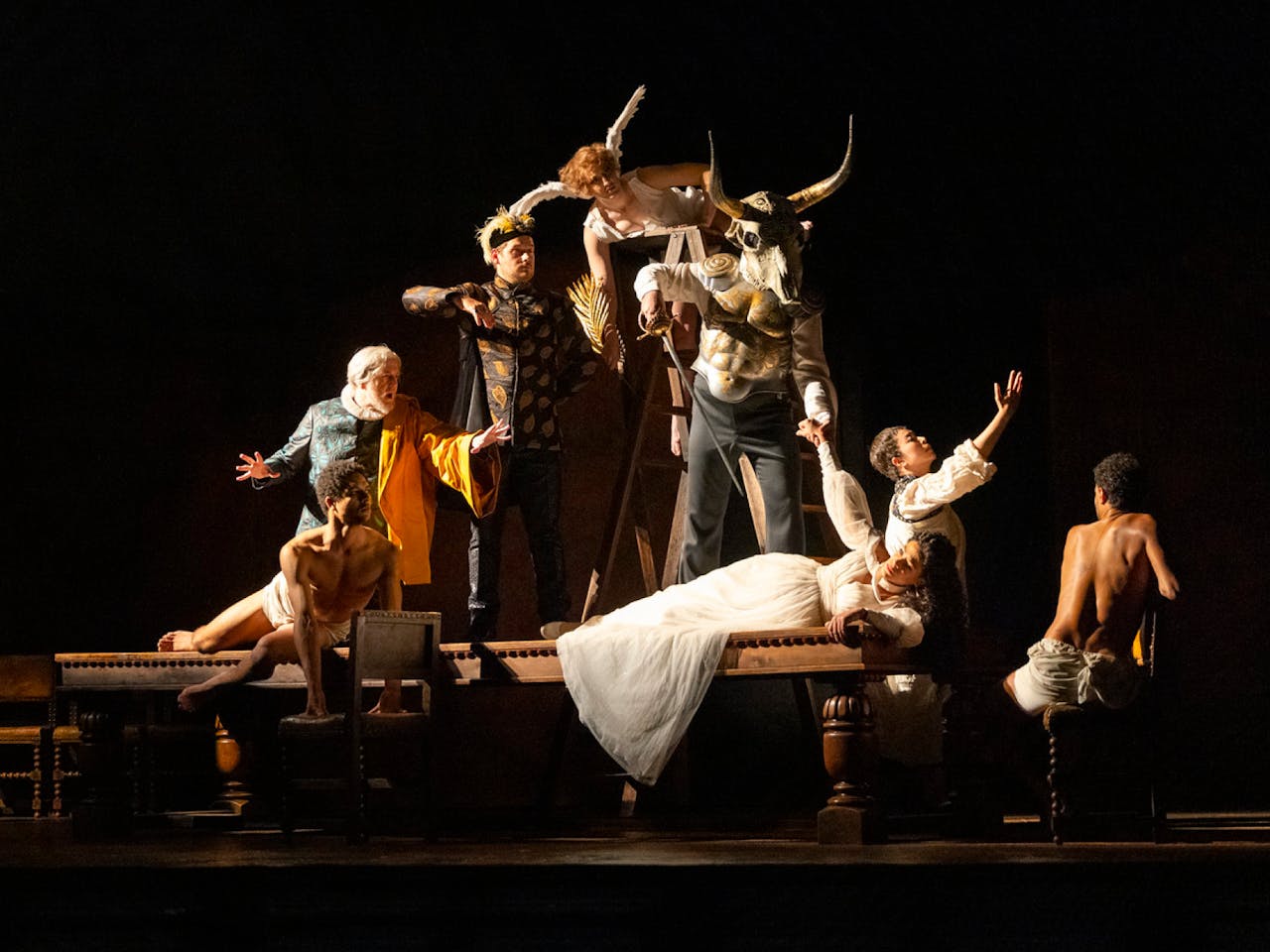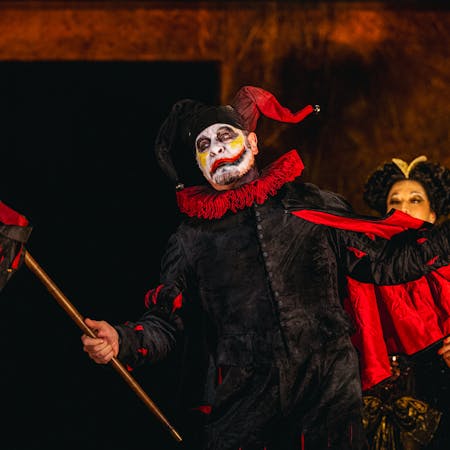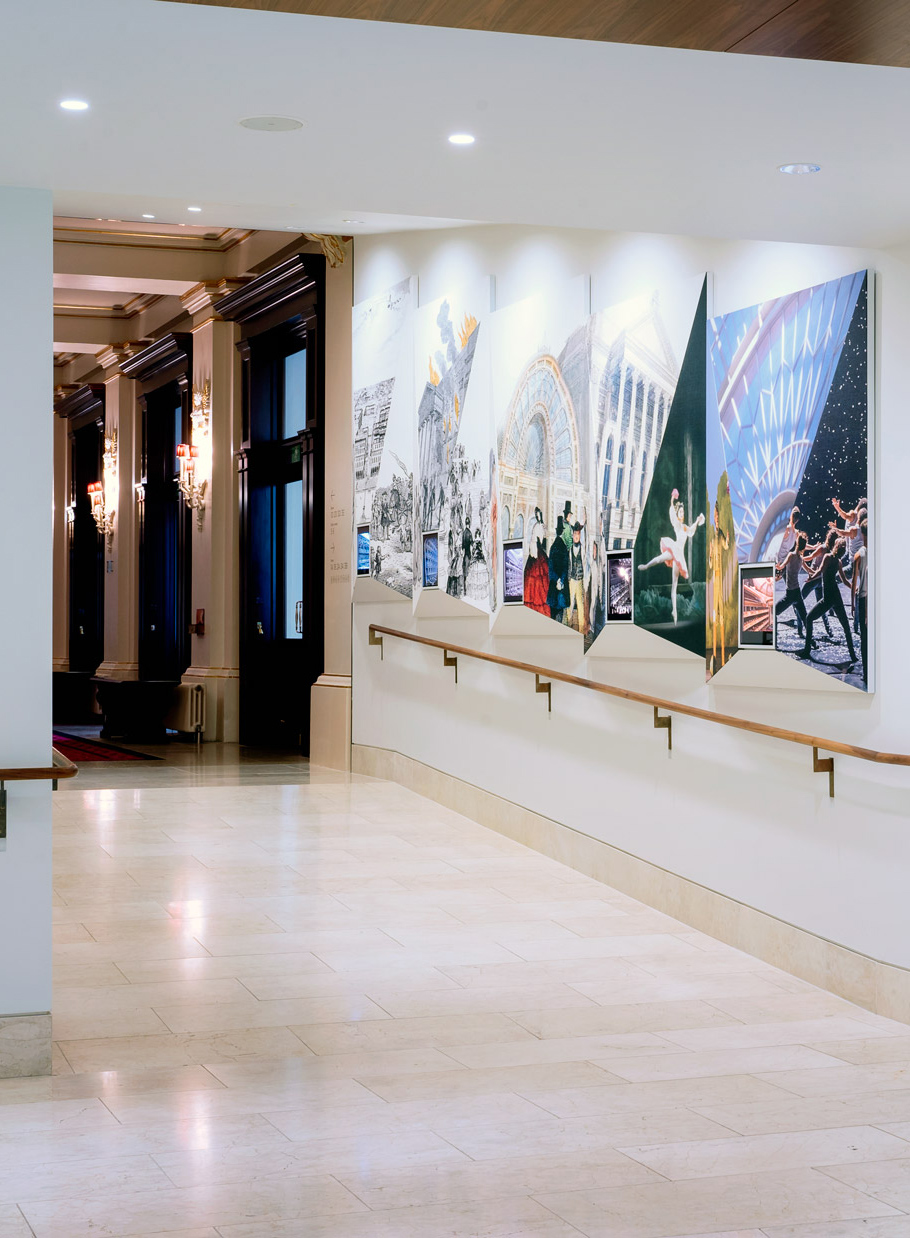Rigoletto
Rigoletto
Rigoletto
Verdi's devastating masterpiece pits power against innocence in a pitiless world of luxurious decadence, corruption and social decay.

Verdi's devastating masterpiece pits power against innocence in a pitiless world of luxurious decadence, corruption and social decay.
Verdi's devastating masterpiece pits power against innocence in a pitiless world of luxurious decadence, corruption and social decay.
Royal Opera House Principals Julia and Hans Rausing
Season Principal Aline Foriel-Destezet
Huo Family Foundation, Sir Mick and Lady Barbara Davis, Sandra and Anthony Gutman and Melinda and Donald Quintin
Story

The Duke of Mantua is a serial womaniser. At a palace party, not content with the married Countess Ceprano, the Duke reveals he is also infatuated with a mysterious woman he has seen in church. The hunchbacked jester Rigoletto jokes that the Duke should have the Countess’s husband murdered. Count Ceprano vows to kidnap Rigoletto’s lover as punishment. Chaos descends when the elderly Count Monterone arrives and confronts the Duke for seducing his daughter: a third conquest. Rigoletto takes his jesting too far, and the old man curses him and his fellow courtiers.
Rigoletto’s so-called ‘lover’ is in fact his daughter, Gilda, whom he keeps under lock and key at home. She has secretly fallen in love with the Duke of Mantua, who came to her church in disguise. Gilda is kidnapped by Count Ceprano and delivered into the Duke’s clutches. Rigoletto engages an assassin to exact his revenge. But before the day is out, the old man’s curse will exert its deadly power.
Background
A Successful Adaptation
In 1855, Giuseppe Verdi wrote that Rigoletto, based on Victor Hugo’s play Le Roi s’amuse, was his ‘best opera’. The Italian composer struggled to overcome state censorship to stage the work – the censors objected to its depiction of an immoral ruler – but Verdi was eventually vindicated by the premiere’s huge success in 1885. Rigoletto was subsequently performed 250 times in the next 10 years and has remained one of the most popular of all operas.
Unforgettable Melodies
Lavishly dressed courtiers indulge in orgies and revelry against Verdi’s heady, spirited dances. The playboy Duke boasts of his disregard for women in the swaggering ‘La donna è mobile’. Gilda gives her trembling declaration of love in ‘Caro nome’. These are just a few of Rigoletto’s many musical highlights, which also include the gorgeous and ever-popular Act III quartet that beautifully weaves together the voices of its protagonists before quickening to a shattering conclusion. Julia Jones and Renato Balsadonna conduct two stunning casts in Oliver Mears' darkly elegant production of Verdi’s devastating masterpiece.
Cast and Creatives
Creatives
Reviews

Accessibility
There is lift access and step-free routes to over 100 seats in the Stalls Circle, Balcony and Amphitheatre. There are 10 steps or fewer to some seats in the Stalls Circle, Balcony, Amphitheatre and the Donald Gordon Grand Tier. All seats in the Orchestra stalls are accessed by 9 steps or more. There is an Assisted Hearing Facility, and we produce Audio Introductions for most Main Stage Events.
BSL Interpreted Performance: Tuesday 24 October 2023 at 7.30pm.
Our BSL interpreted performances offer a professional BSL interpreter positioned on-stage to narrate the dialogue/libretto.
Book wheelchair spaces and accessible seating
Join our free Access Scheme to book accessible seating or wheelchair space options in our auditoria and event spaces. Email boxoffice@roh.org.uk or telephone +44 (0)20 7304 4000 for pricing and availability information, to book tickets or to register. Find out more about Accessibility at the Royal Opera House

Royal Opera House Covent Garden Foundation, a charitable company limited by guarantee incorporated in England and Wales (Company number 480523) Charity Registered (Number 211775)
